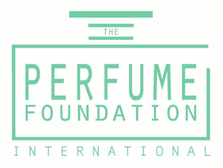|
By Françoise Rapp, France IPF Chair and Perfumotherapy Expert Welcome to the World of Perfumotherapy, where art and science intertwine to create a sensory experience like no other. Perfume has been a trusted companion throughout history, supporting us in various aspects of our lives. In this updated course on Perfumotherapy, we delve deeper into the world of olfaction, exploring the power of our sense of smell and its impact on our emotional well-being. Join us on this fragrant journey as we discover the uniqueness of a beautifully crafted scent.
Understanding the Heritage of Perfume Perfume has a fascinating heritage that stretches back centuries. From ancient civilizations to the modern world, perfume has been an integral part of human culture. In ancient Egypt, perfumes were used for both religious and cosmetic purposes, and the art of perfumery was highly esteemed. The Greeks and Romans also embraced fragrance to enhance their personal grooming rituals and as offerings to the gods. Over time, perfume evolved toward luxury and medicinal purposes with pomanders, vinegars, and other applications. The Science Behind Perfumotherapy Perfumotherapy is not just about the art of creating beautiful scents; it is also rooted in science. Our sense of smell is closely linked to our emotions and memories, making perfume a powerful tool for enhancing our well-being. When we inhale a scent, it triggers a response in our limbic system, which regulates emotions and memories. This connection between scent and emotion is why certain smells evoke strong feelings or transport us back to a specific time or place. Scientific studies have shown that certain scents can profoundly impact our mood and overall well-being. For example, lavender is known for its calming properties, while citrus scents like lemon and orange can uplift and energize. By understanding the science behind Perfumotherapy, we can harness the power of scent to create positive changes in our lives. The Benefits of Perfumotherapy Perfumotherapy offers a multitude of benefits for our overall well-being. The power of scent to evoke emotions and memories can be harnessed to reduce stress, improve mood, and promote relaxation. Certain scents have been shown to enhance cognitive function and improve focus and concentration. By incorporating Perfumotherapy into our daily lives, we can create a sanctuary of scent that supports our emotional and mental well-being. Whether wearing a favorite perfume, diffusing essential oils, or creating our custom blends, Perfumotherapy offers a holistic approach to enhancing our daily lives. As consumers look for ways to enhance serenity in their daily lives, it is crucial to incorporate that dimension into any natural perfume composition. Therefore, a wide array of applications are available in Perfumotherapy, from conventional use to home scents, personal care, and cosmetics. The Updated Course on Perfumotherapy This updated course on Perfumotherapy takes a comprehensive approach to exploring the world of fragrance. From the heritage of perfume to the science behind its therapeutic effects, this course offers a wealth of knowledge and practical skills. Participants will be able to learn from experienced perfumers and industry experts, gaining insight into the art of perfumery and its applications. Through theoretical lessons and hands-on workshops, participants will develop their olfactory skills and learn how to create their unique scents. So why wait? Join us on this fragrant journey and discover the transformative power of Perfumotherapy. The Perfumotherapy curriculum includes an Olfaction Training course, a French natural Aromatherapy course, a French Natural Perfumery course, and four unique complementary modules. Read all the details here. The session opens each first Monday of the month. Enroll now for the February 5 session. Multiple payment plans are available.
0 Comments
Perfume has always been more than just a catalyst for emotions; its impact extends beyond mere pleasure and sentiment, encompassing the health of our bodies and vital energies. While modern society tends to limit perfume's significance to pleasure and emotional wellness alone, it is crucial to expand our perspective. Odorant molecules can subtly influence each body system through the olfactory and cutaneous pathways, making perfume a powerful tool for holistic daily well-being. As a Master Natural Perfumer, aromatherapist, and Naturopath with over 26 years of practice, I have witnessed the profound effects of olfaction and perfume firsthand upon the body, mind, and spirit, leading me to create numerous botanical perfumes for international brands, whether in cosmetics home or for fragrance use. By embracing botanical perfumes crafted with natural and organic ingredients, we can reconnect with nature and harness their healing properties. These perfumes benefit us personally and contribute to a more sustainable and eco-friendly approach to fragrance. So, let us venture into botanical perfumes, exploring their positive effects on our body, mind, and spirit. By embracing this holistic approach to fragrance, we can enhance our well-being and cultivate a deeper connection with the world around us. Perfume's Historical Significance Throughout ancient civilizations, perfume was employed for its therapeutic properties, addressing various ailments of the body and mind. It was more than just a pleasant scent; it was a form of medicine. For instance, perfumes were used as incense, pomanders, and aromatic vinegar to protect the body from miasmas. These fragrant materials, made only with natural herbs, oils, and plant essences, were revered as medicinal support. For instance, herbs, crushed resins, and spices like clove, myrrh, cinnamon, and agarwood were commonly used and known for their antibacterial properties. In addition to its medicinal uses, fragrance played a vital role in spiritual and religious practices. Perfume oils and incense facilitated a deeper connection with the divine and promoted introspection. Burning incense made one feel closer to the divinities, and the smoke of frankincense, myrrh, benzoin, agarwood, guaiac wood, and sage, among others, were considered portals to the higher self and raised consciousness. Perfumes have long been associated with sensory pleasure, enhancing seduction, and captivating our senses. Opulent and narcotic flowers, such as tuberose, rose, narcissus, champaca, davana, and ylang-ylang, were the perfect assets to attract and seduce a loved one. These scents were known to raise libido and desire, reflecting the cultural preferences of their respective countries. By Françoise Rapp, IPF Chair France and Certified Aromachologist The Role of a Natural Perfumer: Reconnecting with Ancestral Heritage As we delve deeper into the interconnectedness of our internal systems and the profound effects of natural essences, it becomes evident that the role of a natural perfumer is of utmost importance. A natural perfumer should master the properties of these essences and harness their potential to benefit our well-being. By understanding the therapeutic properties of various botanical ingredients, a natural perfumer can create fragrances that please the senses and promote physical and emotional health. By reconnecting with our ancestral heritage, a natural perfumer brings the wisdom of ancient cultures to today's urban life and consciousness. They honor the traditions and practices of our ancestors, infusing their creations with the knowledge passed down through generations. Natural perfumers use natural ingredients and sustainable practices to ensure their fragrances benefit individuals and contribute to the planet's well-being. The Olfactory and Cutaneous Pathways When it comes to the power of scent, there is no magic involved. The real magic lies in the composition and artistry of perfumers. When we inhale scent molecules, they interact with our olfactory receptors, triggering brain reactions. Specifically, these reactions occur in the limbic system, which is responsible for our emotions and memories. Through this intricate anatomical and neurological connection, we discover the direct relationship between inhaled odors, memories, feelings, and their influence on our behavior and well-being. The olfactory information, carried by neuro-electric signals, travels from the olfactory bulb through the olfactory tract and into the limbic brain. This information is divided into three circuits, leading to the hippocampus, the amygdala, and the septal nucleus. However, the hypothalamus plays a crucial role in various body functions as it controls the vegetative nervous system, the endocrine system, body temperature, hunger, thirst, and the sleep cycle. It performs these functions by processing stimuli from the peripheral, thalamus, cortex, and limbic systems. Additionally, the hypothalamus regulates the pituitary gland, which stimulates other endocrine glands such as the thyroid, parathyroid, adrenals, pancreas, and gonads. These glands produce hormones and cellular messengers, creating or modifying our physical and physiological behavior. Therefore, inhaling a natural fragrance sets off a complex biological pathway that ultimately leads to a shift in our behavior due to a chain of chemical reactions. The Influence of Skin When we think of perfume, our minds naturally gravitate toward the sense of smell, often neglecting the significance of our skin. However, perfumes were traditionally applied directly to the body for a reason. The heat of our skin allows the fragrance to develop and disperse in a beautiful sillage. At the same time, its pH level, whether acidic or not, enhances the development of specific fragrant notes and facets. Moreover, how scents applied to our skin can affect our overall well-being and vital energies is noteworthy. When perfumes are applied to the skin, they permeate the epidermis layers, facilitating direct absorption into the bloodstream. As a result, these fragrances can influence the body's physiological processes. So, how do we highlight the importance of the relationship between the skin and the brain? Firstly, these two organs share the exact embryological origin. On the 21st day of embryo development, the outermost cell layer gives rise to the nervous system and the epidermis. This shared origin explains the similarities between skin cells and neurons. The skin can be metaphorically described as a "second brain" or an "extension" of the encephalon. This connection between the skin and the brain emphasizes the profound impact that scents applied to our skin can have on our overall well-being and state of mind. It showcases the intricate interplay between our sensory experiences, memories, emotions, and the physiological responses within our bodies. Understanding and appreciating these relationships can enhance our appreciation for the art of perfumery and the transformative power of scent. The Multifaceted Effects of Odorant Molecules Scientific research has extensively studied the positive impact of natural essences on our psyche. At the same time, aromatherapists have recognized the critical role of essential oils in our body system and energetic anatomy. However, to fully comprehend the potential of other plant extracts, such as absolutes and CO2 extracts, it is crucial to understand the biochemistry of these natural essences. This knowledge is not only valuable for aromatherapy products but also for natural perfumes. Natural essences and extracts, as specific biochemical molecules, are integral to the identity of plants. These molecules can stimulate neurotransmitters, influencing mood, stress response, and cognitive functions. Various biochemical families, including monoterpenes, monoterpenols, aromatic aldehydes, and oxides, have been identified to impact vitality, happiness, and uplifting mood. The complexity of a plant's effectiveness arises from the totality of its composition and the interactions between each plant component. Scientists are continuously discovering and unveiling essential information about the role of specific aromatic molecules on neurotransmitters, such as linalool's impact on dopamine and serotonin. Although the subject is complex, it represents the future of alternative medicine. Several studies have reported increased dopamine levels in different brain regions, particularly the striatum, after exposure to linalool. Furthermore, the anxiolytic action of several essential oils rich in linalool is associated with the dopaminergic domain. This increase in dopamine levels partially explains linalool's anxiolytic action, as dopaminergic activation impacts pituitary activity and may directly or indirectly influence the level of ACTH. Research has shown that linalool decreases cortisol levels in the body, which is associated with reduced stress. Modulating cortisol levels could regulate pressure and limit its adverse effects. Endocrine System Influence Perfume molecules can interact with the endocrine system, regulating hormone production and affecting overall well-being. However, it is essential to note that certain synthetic perfume compounds can also have endocrine-disrupting effects. On the other hand, natural essences possess a complex biochemistry that offers potential benefits. There is ongoing research on plant hormones and their effect on the endocrine system. It is believed that essential oils impact the general endocrine system by mimicking human hormones through the action of plant hormones, also known as "phytohormones." These phytohormones can help rebalance, stimulate, or calm the endocrine system. Additionally, essential oils can have specific actions on glands. For example, cinnamon and coriander can help rebalance blood sugar levels, while black spruce and pine stimulate the adrenal cortex. Botanical Perfume: The Bridge of Elemental Nature Between Consciousness Natural essences profoundly affect our inner well-being, extending far beyond what we have previously explored. As a steadfast ally, they have accompanied human beings throughout history, harnessing their subtle powers. As consciousness evolves globally, perfume continues to weave its narrative. Forward-thinking companies have proclaimed that the products of today and tomorrow will significantly impact our soul's well-being. Perfume, breaking free from the confines of the market and fashion dictated by emotions, reclaims its original purpose. It aligns itself with the essence of life, reconnecting us with the elements of Nature in a genuine and awe-inspiring manner. Uncertainty looms over the future in a world clouded by a continuous stream of environmental, health, geopolitical, and political crises. This is precisely why an increasing yearning for peace and freedom is a profound call to reconnect with Nature. More than ever, botanical perfume influences our bodies and consciousness. This evolution transcends convention and paves the way for new well-being categories. Perfume reclaims its noble status, bridging the gap between the physical body, its divine essence, and the Divine itself. It carries a sacred dimension that holds profound significance today, drawing inspiration from a harmonious blend of tradition and modernity. The role of the natural perfumer extends beyond creating unique and aesthetically pleasing compositions; it facilitates a genuine and heartfelt reconnection with the power of Nature and the elements. Simultaneously, it awakens the sacred within us, raising our consciousness and transforming our subtle body chemistry. The Power of Genuine Natural Essences A crucial aspect lies in the natural perfumer's meticulous selection of high-quality essences. This selection process requires a comprehensive understanding of each essence, encompassing its scientific and chemical properties, medicinal applications, olfactory characteristics, and holistic attributes. Numerous factors influence the quality of a plant's essence, including its origin, cultivation methods, the timing of its harvest, and the preservation of its olfactory and "medicinal" qualities through appropriate extraction methods (such as gentle steam distillation below 100°C). Furthermore, proper storage in professional-grade bottles at suitable temperatures is paramount. A perfume's olfactory appeal and well-being benefits depend significantly on the exceptional quality of the chosen essences. Failing to adhere to the steps above will result in essences with diminished olfactory and biochemical profiles, yielding lower-than-expected results. In today's world, it is evident that the role of a natural perfumer extends far beyond being a creative artist or a marketer. Their work is significant in our heritage and profoundly impacts our well-being. In recent decades, perfumery has been seen as a blend of creativity and marketing. However, in recent times, the natural perfumer's role has evolved to encompass much more than just these two aspects. The compositions created by natural perfumers are not merely a way to reconnect with nature. Instead, they are potent vectors for expanding consciousness and promoting overall well-being. Each fragrance composition crafted by a natural perfumer has the potential to awaken our senses and elevate our spirits. A successful natural perfumer must be aware of the beneficial effects that their compositions can have on individuals. These fragrances can evoke emotions, uplift moods, and provide holistic benefits. The perfumer must understand the intricate relationship between scent and our physiological and psychological well-being. By harnessing the power of natural ingredients, the natural perfumer creates fragrances that smell pleasant while positively impacting the user’s overall wellness. by Françoise Rapp, Master Perfumer and Lead Instructor As September rolls around, it marks the beginning of a new school year and presents the perfect opportunity to embark on exciting learning journeys. Whether you are an aspiring perfumer or experienced, we are proud to introduce the largest International natural perfumery educational platform designed to teach all aspects of this captivating art. Our comprehensive curriculum offers a range of courses, masterclasses, and advanced programs that enable you to acquire new techniques and deepen your knowledge, ultimately empowering you to design your own successful brand.
Perfumotherapy: Immersing Yourself in the World of Natural Perfumery One of our flagship courses is Perfumotherapy, an immersive experience that unveils the world and art of natural perfumery. This course provides a solid foundation in perfume creation and technique, emphasizing the crucial role of olfaction and natural essences. Comprising of Olfaction Training, French Natural Aromatherapy, and French Natural Perfumery courses, the Perfumotherapy diploma is a comprehensive program that legitimizes your work as a natural perfumer. Understanding the basics of olfaction and the true essence of natural ingredients is vital for conceiving, comprehending, conveying, and authenticating beautiful natural creations. Master Natural Perfumer: Elevating Your Expertise For certified perfumers seeking to enhance their skills and knowledge, we offer the Master Natural Perfumer course. This program includes the Perfumotherapy course as a foundation and allows you to choose four additional masterclasses or courses that align with your specific interests. Whether you wish to delve into marketing and brand design, perfect your formula-building skills, explore the role of essences on the psyche and emotions through the aromachology course, or trace the historical perfume routes with our captivating masterclasses, the choice is yours. Supporting Your Art and Passion We aim to support each natural perfumer in developing their art and passion. We believe that you are the driving force behind the world of natural perfumery today and tomorrow. That is why all Natural Perfumery Teachers Academy instructors are recognized experts in their respective fields, ensuring that you receive the highest quality education. Moreover, our courses are available in multiple languages ensuring accessibility to a wide range of learners and easing your learning experience. Additionally, we offer a convenient installment payment method to accommodate various budgets and make the courses more accessible. As you embark on this new school year, we hope September becomes filled with joyous learning and the opportunity to unleash your artistic potential. Let the wonders of natural perfumery inspire and guide you on your journey. By Françoise Rapp, Certified Master Perfumer Perfumery has been an integral part of human life for centuries, with the use of natural fragrances dating back to ancient civilizations. One of the key ingredients in any heritage perfume is Musk, which has a rich history worldwide. Musk is a complex and intriguing aroma that adds depth and complexity to fragrances, but it has also been controversial due to its animal origins. In this article, we look closer at the different types of Musk used in the perfumery industry and how it has been adapted to natural perfumery while keeping the ethical concerns surrounding their use. A brief history of Musk The use of Musk in perfumery dates to ancient times, with the ancient Egyptians and Romans using Musk in their perfumes. Musk was considered a luxury item and often used in religious ceremonies. The Musk used in ancient times came from the musk deer, a small deer found in Asia. The musk deer produces a glandular secretion with a strong, musky odor, collected. Sometimes part in rituals to ward off negative vibrations or as a medical remedy, Musk has crossed civilizations and borders. If its use varied from one culture to another, all recognized the aphrodisiac virtues of Musk. This property originates in the animal world: during the rutting period, the musk horse secretes an odorous liquid that bewitches females. By the 6th century, Musk was discovered by Greek explorers, making its way across India into the Arabic regions. From this time, Musk's power and popularity took off, turning into everything from perfumes to pomander balls to ward off smells and disease. From the 8th to the 13th century, animal musk was a must to perfume clothes and interiors. However, it was in the 12th century that this substance arrived in Western Europe. By the 15th century, the musk trade peaked, and Islamic culture and regional rituals used it to represent the smell of heaven. In the 19th century, Musk became even more popular in the perfumery industry, and the demand for Musk led to the overhunting of musk deer. It led to a decline in the musk deer population and made Musk expensive and rare. As a result, the perfumery industry began to look for alternative sources of Musk, like synthetic Musk. Still nowadays, however. The appeal of Musk's warm, sensual scent reached its peak in the 1960s and 1970s, and it has now become an essential component in perfumery and cosmetics. Musk and Animal Cruelty The use of Musk from the musk deer has been controversial due to the harm caused to the animals. Harvesting Musk from the musk deer requires killing the animal, leading to the overhunting of the musk deer and a decline in their population. In addition, the musk deer is a protected species, and the harvesting of Musk is illegal in many countries. While natural Musk from the musk deer has decreased, some perfumers still use it in their perfumes. Since the growing era of synthetics, Musk has been king and still nowadays. Perfumers add Musk to their formula to add a long-lasting effect and a soft sensual facet to their scent. Conventional perfumery uses synthetics Musk for those reasons and the cost efficiency of formulas. Besides the impact on our health and the olfactory flatness of the synthetic component, it contributes to making conventional perfumes smell the same. Musk becomes a joker card for traditional perfumers who overuse it, often forgetting or not knowing that natural musky notes can be more flattering for the senses than they imagine. However, there has been a growing trend toward using Musk from plant sources in natural perfumery, and it is so much more interesting in terms of olfactory quality! The Use of Musk from Plant Sources in Natural Perfumery
Musk from plant sources has become increasingly popular in natural perfumery. Musk's most common plant source is the ambrette seed, which has a sweet musky aroma; it is called the seeds of Musk. However, it is possible to use other plant sources to build musk accords and provide the same olfactory enchantment and perfume-lasting quality. Plant-based Musk has a different aroma than animal-based Musk but still adds depth and complexity to perfumes. The olfactory specifics of botanical musk depend on the source of the Musk. For example, when ambrette seed musk has a sweet and musky aroma, angelica root has a spicy facet. Plant-based Musk is often combined with other natural perfume ingredients to create unique and complex accords. What does botanical musk accord bring to a natural perfume? Using plant-based Musk in natural perfumery has opened a new world of possibilities for perfumers, allowing them to create unique and sustainable fragrances. It ignites the perfumer's creativity and adds another dimension to a natural perfumed composition. Moreover, it is a source of inspiration for noses. In a natural perfume, musk accord brings a feeling of softness and comfort, a deep, reassuring sensation. This olfactory family is addictive and comforting: people who wear a perfume containing Musk feel a sense of serenity as if they were in a cocoon. A long-lasting trail: in the composition of a perfume, the molecules contained in botanical musk accord play the role of fixers, which makes it possible to prolong the "sillage" of scents. The musky notes become binders between the various elements of the agreement and bring roundness and sensuality. Popular in women's and mixed fragrances, we can use Musk in the base notes of compositions for those properties and its delightful character. How to Compose Botanical Musk Composing botanical musk requires a deep understanding of the different plant sources of Musk and their olfactory components. Perfumers must also have a keen sense of the other natural ingredients used in perfumes and how they interact with each other. One way to learn how to compose botanical musk is through a masterclass. A masterclass is a great way to gain valuable knowledge and mastery from an experienced perfumer. In a masterclass, participants learn about the different plant sources of Musk, their olfactory properties, and how to combine them with other natural ingredients to create unique and complex accords and natural fragrances. Creating your signature musk accord is a must for a natural perfumer and a secret formulation that make your natural fragrances outstanding while being sustainable and from plant sources. If you're interested in learning how to compose botanical musk and want to take your natural perfumery skills to the next level, then a masterclass is the perfect way. Stay tuned for more information about our upcoming masterclass, where you'll learn from experienced perfumers and gain hands-on experience in creating natural perfumes. By learning how to use plant-based Musk in perfumes, you'll be able to create unique and complex fragrances that are both sustainable and ethical. So, join us for our upcoming masterclass on June 5 and take your natural perfumery skills to the next level! Botanical Musk Accords Master Class By Françoise Rapp, Certified Natural Perfumer, Aromatherapist and Aromachologist The term aromachology appeared in the 1980s and it describes the science of the phenomenon that links odors to behavior. We became aware at that moment of this subtle and profound power and above all, how it affects our daily life in all its aspects, from the intimate to the spiritual and the professional. For almost 26 years, I have been composing natural perfumes taking this dimension into account because it seems to me to be inseparable from the mission of the natural perfumer. My training as a naturopath has meant that I have also worked all these years with patients and therefore have seen what the positive effects of smell on emotions are. When we understand the role that smell plays on inner well-being, we understand the need to compose a natural perfume and its olfactory quality as well because it acts powerfully on the sensory memory. The olfactory sense is our most reptilian sense, and it is one of the most powerful because it is linked to our survival. Throughout our lives, we memorize a library of smells that can stay buried for years. The sense of smell is a sense outside the notion of time/space. Therefore, we can have a reaction linked to the very old memory of a person, a place, a situation when we feel a specific scent that reminds us of this. We can even smell so-called “ghost” smells just by reliving this memory. In a fragment of a second we travel in time and in an emotion that we thought had been forgotten. Smell: a Mental Representation For a molecule to become an odor, a brain is needed. According to Pierre-Marie Lledo, co-director of the Genes, Synapses and Cognition laboratory, our brain establishes olfactory maps from the combination of receptors activated by such and such a molecule. These cards work like a kind of QR code and allow each chemical stimulus to be associated with a mental representation: the smell. The latter is malleable and evolves according to our experiences and our culture. The first thing we perceive in a smell is its emotional side I either like it or I don't like it, before we even ask ourselves any other rational question. And if odors awaken in us such clear and intense emotions and memories, it is because the brain areas they activate are intimately connected with those mobilized by emotions: the hippocampus plays the role in long-term memory term: the hard disk that records our learning from the moment we were in our mother's womb. The amygdala plays a fundamental role in decoding our emotions generated by the different situations of our life. For example, it intervenes in behaviors such as fear, pleasure, or memory. The septal nucleus plays a role in controlling emotions and in feelings of pleasure, it is directly linked to the sense of smell. Aromachology, a Global Approach to Smell and Feel
This intrinsic link between smells and emotions has been questioned by many scientists who have tested its benefits. Some, like Dr. Aubert, say they know that certain smells can elicit emotional responses capable of transiently increasing the release of certain brain mediators such as serotonin, which promotes a positive mood and builds a state of well-being. Therefore, aromachology and products composed of natural plant essences have great power on the inner well-being of the person. This approach can be broken down into different types of products: from natural perfumes with an alcoholic or non-alcoholic base, to perfumed creams and balms for the body, to home fragrances, candles and even incense, to hygiene products and natural cosmetics. The market clearly shows that for two years during the pandemic period, the new consumer has been looking for sensory experiences in addition to product efficiency. They want an immersion in Nature which brings them benefits for their well-being. Beyond the Knowledge of Natural Essences As a creative perfumer, it is essential to acquire knowledge of the aromachological virtues of natural essences on the psyche since their action on the emotions is proven. This dimension adds to our responsibility as creators towards the consumer. Aromachology stands beyond natural perfumery and a simple pleasant scent and even a trained natural perfumer should be aware of it. Here is how natural essences act by simple olfaction. From their liquid state, by chemical reaction in contact with air, they are transformed into etheric gas. Volatile, by their infinitely small and light molecules, they bring to a quantum level a vibratory frequency which, like the photon, carries information. This information is a natural principle or intelligence of nature which has a function, here in this case properties. Therefore, a natural perfume has a dimension far beyond that of simply “smelling good”; it can be balanced and effective or it can be dissonant because certain raw materials will contradict each other. This olfactory dissonance is often unknown to the natural perfumer but not to the aromachologist. When composing the perfume, we set a clear objective on the result or the effect that is desired. From this, stem the selection of each ingredient that will compose it. Aromachological benefits can be substantiated in marketing materials and product claims. Creating natural perfumes, whatever their final form, requires, in my opinion, a knowledge of aromachology. Therefore, it seems to me necessary that knowing the olfactory and aromachological qualities of natural essences is essential for a natural perfumer It is obvious that they must master the sensory dimension and the virtues that their perfume will have on the emotions of the consumer. You can now learn and deepen your knowledge in the new aromachology course which starts on January 9th. It will be taught every first Monday of every month. Register for the course Access to the Aromachology Level 1 Masterclass Sri Kudaravalli's Interview by Françoise Rapp What inspired you to become a perfumer? The joy of delightful smells and a good nose. To express myself in a different language. Speaking through perfumes as perfumes can replace words. When created from love with intention, attention and the right ingredients, perfumes have the power to impact a person in a positive way. How did you start? What courses have you followed? I started reading first - books, online. Then I talked to some Indian perfumers and gained more knowledge. Later I came across the Natural Perfumery Teacher’s Academy online courses for French style natural perfumery. I really like how the curriculum is structured. It is obvious that a lot of thought went into designing the courses. It’s a full spectrum curriculum that includes - gardening, oil extraction, perfumery, aromatherapy, perfume history, olfaction to marketing adhering to IPF’s New Luxury Code. They pack a lot of punch in the short format courses and the information is very practical and actionable. The courses broadened my horizons and I picked up a lot of knowledge in a short period of time and was able to design products and create my brand. For anyone wanting to learn natural perfumery, the ancillary information and is environmentally conscious, it's a good place to start. The faculty is friendly, kind, and knowledgeable. What made you decide to create your brand? Several factors. As you know, we all went through a very difficult pandemic, the past two years, and many people are still experiencing a deep sense of isolation, fear and uncertainty. I asked myself what would be the role of a perfumer? How can I contribute? How can one help restore some sense of well-being? In this context, I would like to quote an ancient perfumer from India - Gangadhara, 1500 years ago, said: “The final goal of perfumery is to infuse semi-divinity within us and elevate our mind by freeing it from the mundane worries of the world." So, I feel as perfumers we have a certain responsibility to help people cope with everyday post-pandemic life, and it was in that spirit, Xila Apothic, was created. To me a brand is not just about selling products. It's about what you stand for. Xila Apothic is not just about perfumes - it introduces people to a way of life. Brand is a unique expression of you - your values, belief system, culture, a community of people with shared interests and rituals. It is a way of self-expression. What made you participate in the New Luxury Awards competition? I wanted to challenge myself. I think taking action is key to success. Entering a competition forces you think through things and paves way for smart and hard work. It stretches you and nudges you out of your comfort zone. In the process, you discover new facets of yourself and your strengths. What was your feeling when you came to Paris and received the New Luxury Award? It was very gratifying. A validation that belief in one-self and focused hard work pay off. I would like to thank Creezy Courtoy, IPF Chair, for creating this platform to showcase our talent and for encouraging natural perfumers. I would also like to thank the faculty at the Natural Perfumery Teacher's Academy for their guidance. What has happened to you since this? New opportunities are knocking on my doors, including investors and clients. We are launching a new product line for the upcoming festive holiday season starting from September 2022, besides what is already available. Social Media: @XilaApothic by Pr Françoise RAPP, IPF Chair France and French Natural Perfumery and Natural Aromatherapy Expert Perfume has always had a sacred meaning connecting man with the divine, but did you know that it had other more "therapeutic" roles such as protecting or even preserving the good health of the body? The oldest knew it and they used essences, resins in various forms for this action. Fumigations, anointing, and also accessories for carrying perfume were used as early as ancient Egypt. This way of proceeding was then taken up again during ancient Rome and then came to Europe through the Crusades. This accessory diffused the scent of aromatics, animal raw materials and various resins thanks to the body heat. It is said then that he helped protect himself from the Black Death and other miasmas of the time. Far from being a tool or means of seduction, this perfume had above all a medicinal function above all. It was most often of an almost solid pasty texture. Its powerful and purifying fragrance emanated from an accessory called sweet apple. This object has evolved greatly over the course of history to be worn like a jewel on the belt or around the neck. The Renaissance saw sweet apples as a fashion accessory with multiple functions, including those of covering bad body odor and protecting against epidemics decimating the population. It must be remembered that bodily hygiene was understood as something almost erotic by the Church. The sweet apple was then very practical to use and this accessory was declined like a real jewel even demonstrating a level of richness by the object and by the raw materials used because these were expensive. What is a sweet apple and how does it work? Sweet apples, "pommanders" or "pomanders" are either openwork or made up of airtight "quarters". These objects are almost exclusively precious jewels. Common people and poor people cannot afford these rare and expensive perfumes. Pomanders are usually spherical in shape and open in two parts and then into several quarters, like an orange. In each of these quarters are placed the herbs. In contact with the heat of the body, the aromatics exhaled their perfumes, delicious perfumes offered to God "per fumum". Perhaps this original oblation helped to obtain a divine favor: that of living a long life or curing an illness in addition to emanating powerfully purifying and protective aromatic scents. Medieval sweet apples were continually worn by their owner. As a necklace, a ring or held at the end of a velvet ribbon or a precious metal chain, they accompanied the body and remained as close as possible to it. What raw materials for perfume were then used? These objects allow you to carry the scent of musk, ambergris or civet with you (materials all secreted by wild animals with a ... pronounced smell) The Song of Songs also regularly refers to spices. In its different versions (Greek, Latin or Hebrew), it always ends by evoking "the mountain of spices". The aromatics therefore legitimately find their place in the culture of the Middle Ages. They are the luxurious ingredients warmly recommended by the Church to guard against epidemics and especially the Black Death. In 1174, the ancestor of perfume diffusers arrived in Europe. On this date, Baudoin IV (1161-1185), King of Jerusalem, offered Emperor Frederick Barbarossa (1122 - 1190) several golden apples (precious sweet apples) filled with musk. Chronologically, musk and amber are the most popular scents. Nevertheless, from the middle of the 14th century, the Paris medical faculty added no less than 29 odorous substances suitable for taking place in these cases. Thus make their appearance nutmeg, aloe wood, ginger, cloves, cinnamon, camphor, sandalwood or cinnamon. These herbs come from the Eastern Perfume Roads crossing countries as far as they are fascinating. Recipe for making pomander included in The Treasury of Commodious Conceits, and Hidden Secrets by John Partridge (London, 1586) "Benzoin resin, calamus, labdanum, and storax balm were ground into a powder, dissolved in rose water, and placed in a saucepan over a fire to cook together. The cooked mixture was then removed from the heat, rolled into an apple shape and coated with a powdered mixture of cinnamon, soft sanders and cloves. After that, a concoction was made from three grains each of ambergris, deer musk and civet musk. Ambergris was dissolved first, and deer and civet musk were mixed later. The "apple" ball was rolled through the musk concoction to blend into these ingredients, then kneaded to combine and molded into an apple shape." Nostradamus Recipe Michel de Nostredame had a similar method and formula but a rather different procedure. The "rose tablets" were made by soaking a pound of roses without the flower heads in deer musk water overnight. The water was then carefully wrung out and the roses crushed with seven ounces of benzoin, a quarter of ambergris and another of civet musk. This mixture was made into tablets, which were each sandwiched between rose petals and dried in a cool, dark place. To form the final pomander, two ounces of the purest labdanum, one ounce each of styrax and benzoin resin, half an ounce of rose tablets, one ounce of violet powder, and half a dram each of ambergris and musk were ground into powder and kneaded with rose water from the manufacture of rose tablets. This produced "an aromatic ball of the most sublime and long-lasting scent that could be made anywhere in the world" it seems. If you were to create a pomander today with existing raw materials, what would the formula be?
Become a natural perfumer and discover how to formulate natural fragrances; discover the program and register quickly before November 8th. The French Natural perfumery program opens its doors for 8 exciting weeks! And if you want to learn more about the history of pomanders don’t miss Creezy Courtoy’s World Perfume History MasterClass starting on December 6. |
Archives
June 2024
Categories
All
|
- HOME
- ABOUT
- IPF CERTIFICATION
-
COURSES
-
MASTER CLASSES
- Teaching Methodology
- Natural Raw Material Extraction Methods >
- Natural Candle Making
- Healing Gardening
- Sustainable Oud MasterClass
- World Perfume History Master Class
- Scent Design and Formula Building >
- Fragrant Botany & Chemistry >
- Perfume Design, Concept and Storytelling
- French Natural Aromachology #1
- French Natural Aromachology #2
- Olfaction Training for Children
- Accords - Chypre
- Accords - White Florals 1
- Accords - Fougeres and Aromatics
- FRAGRANCE DEVELOPMENT
- SPEAKERS
- EXHIBITIONS
- Partners
- Blog
- Contact
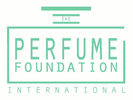
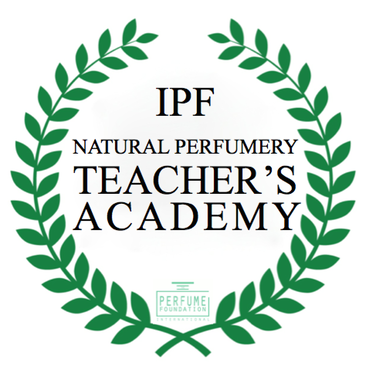
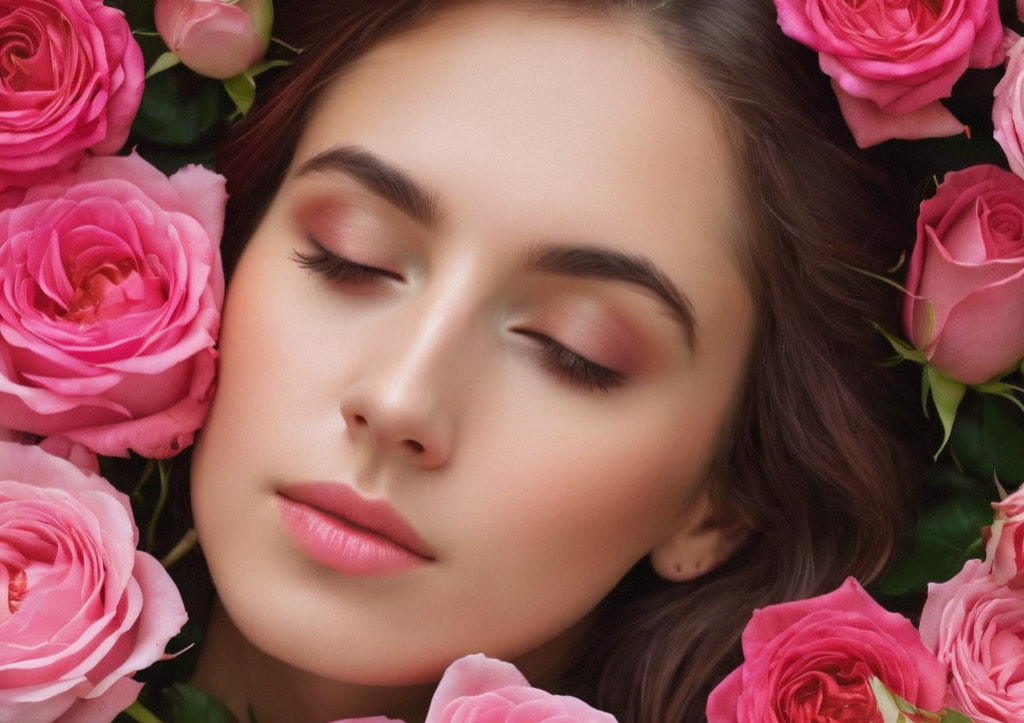
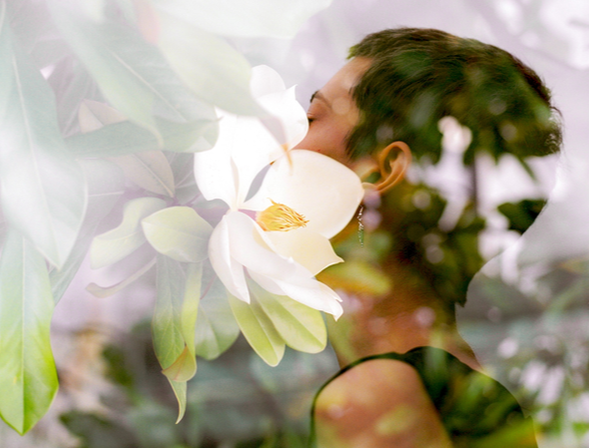
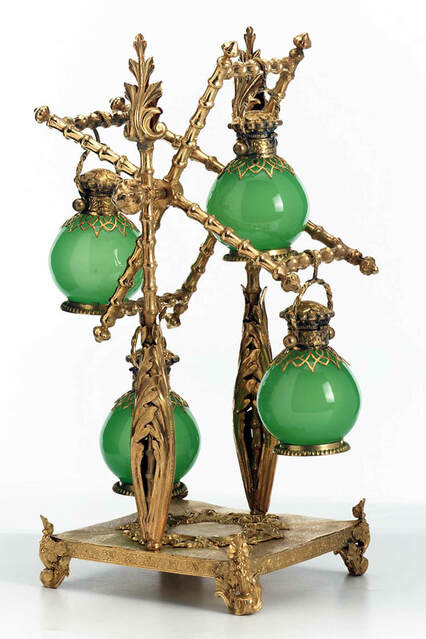
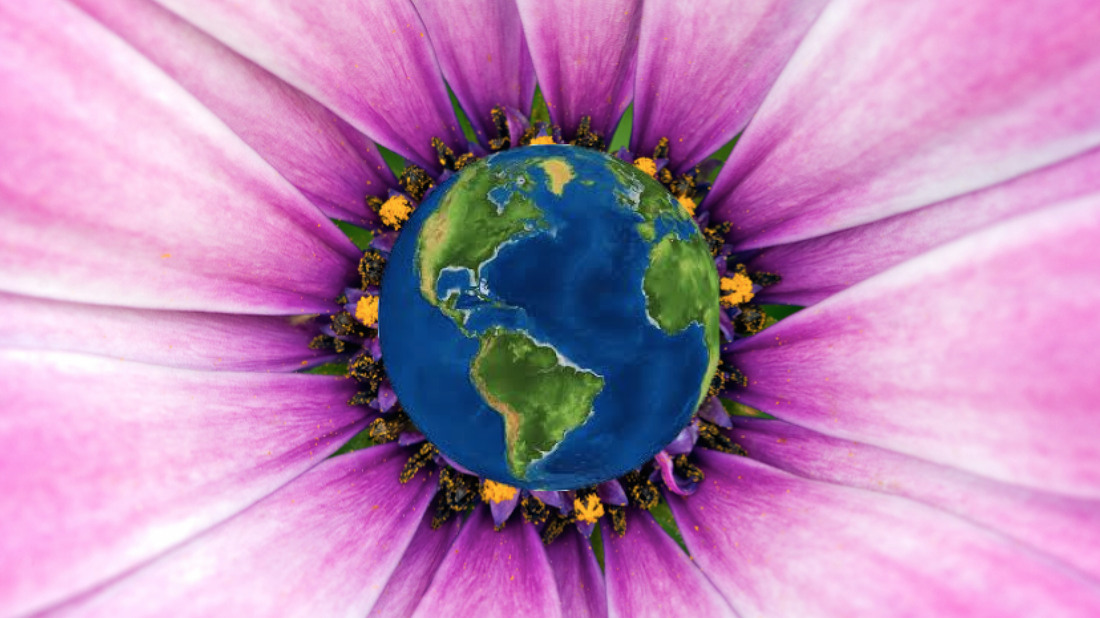
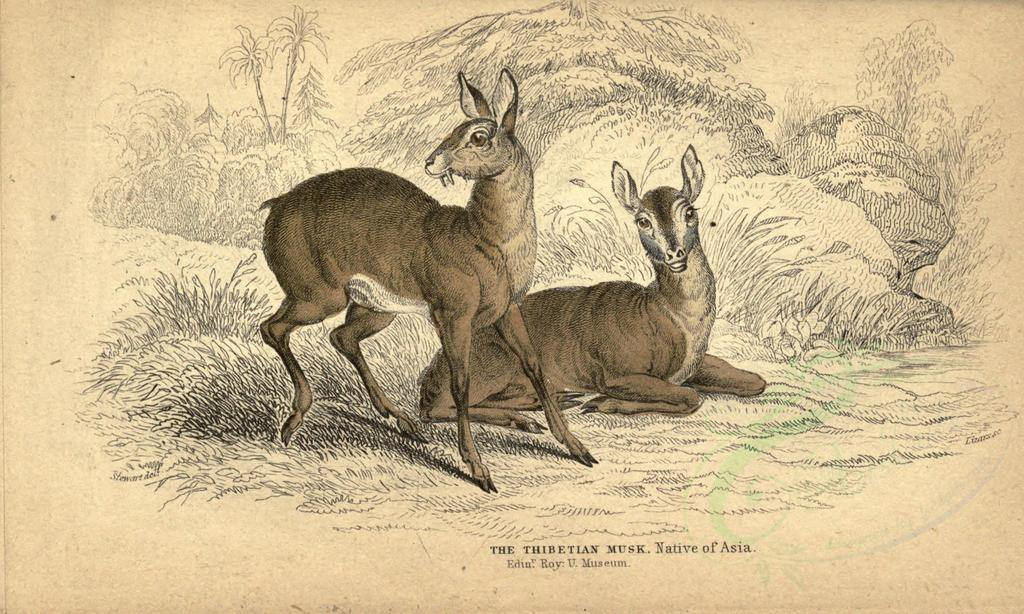
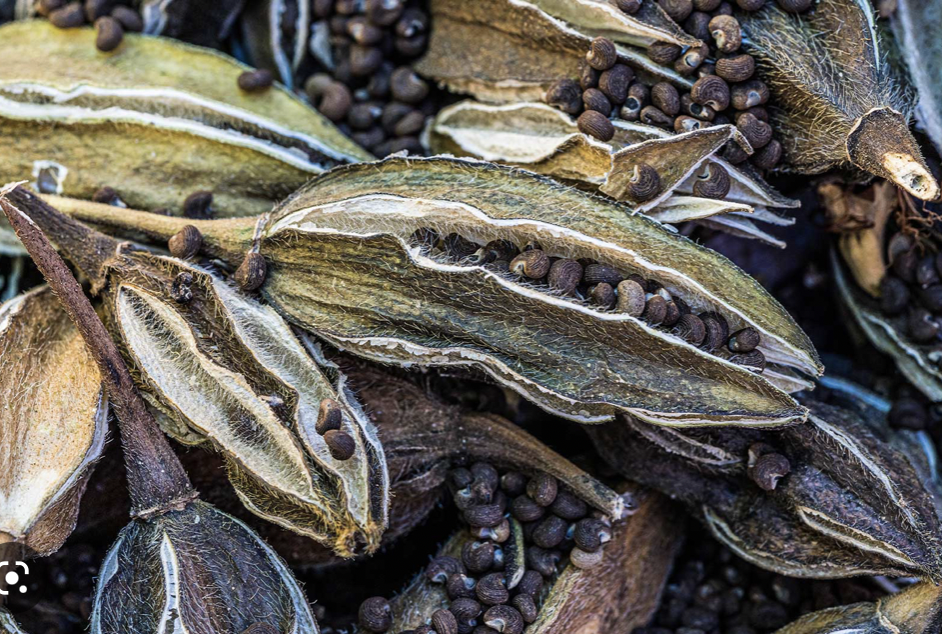
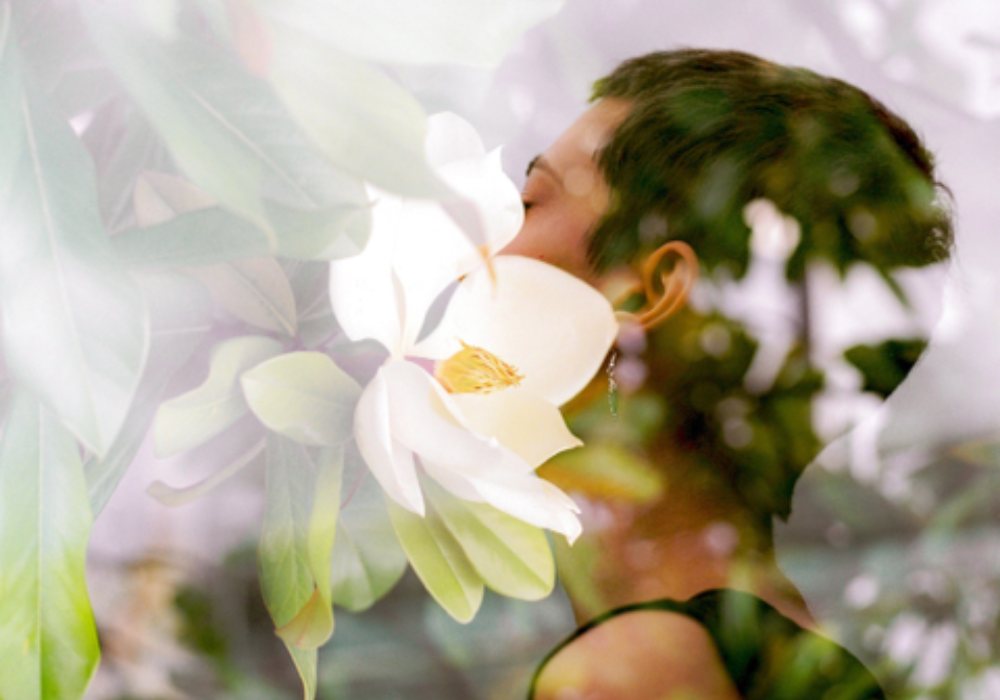
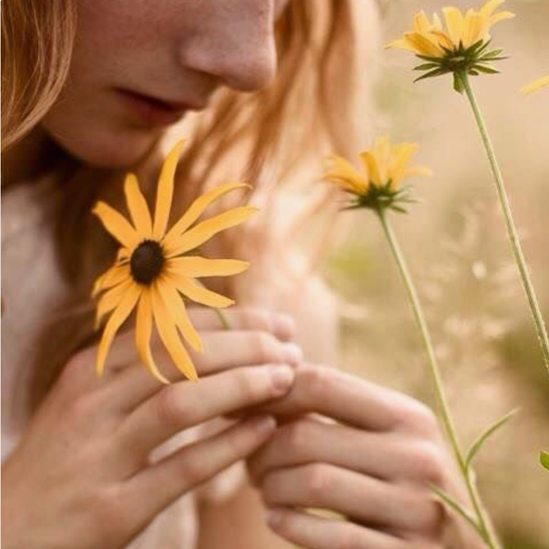

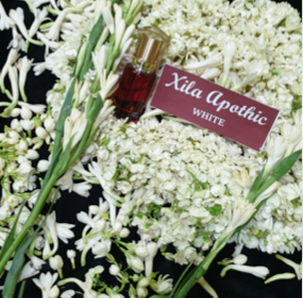


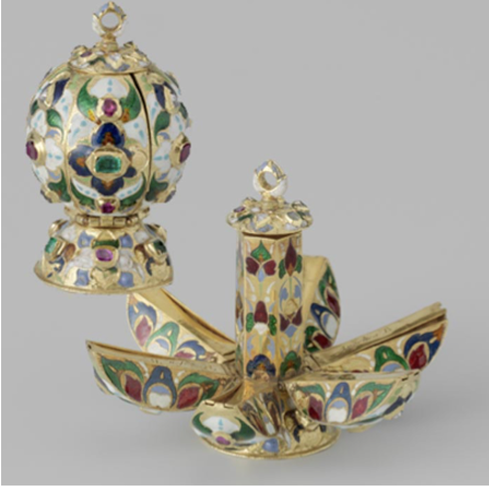
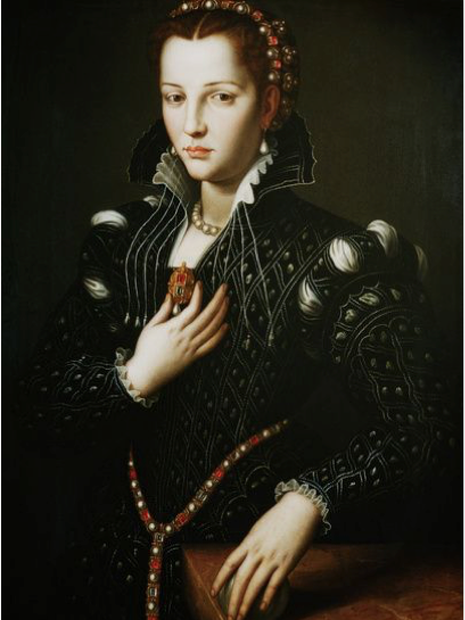
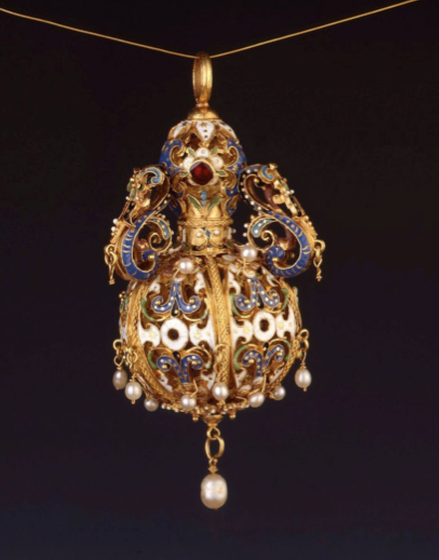
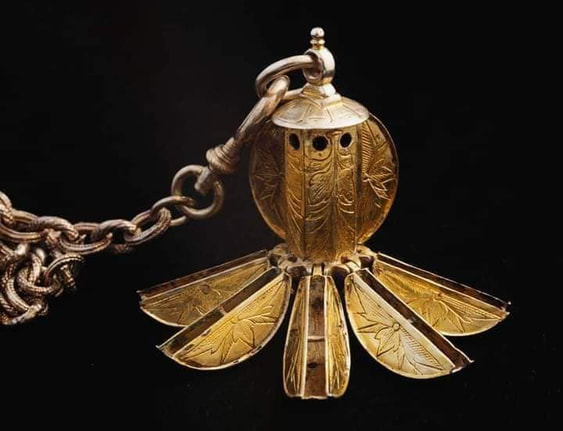
 RSS Feed
RSS Feed
